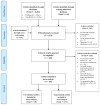Health literacy and adherence to medical treatment in chronic and acute illness: A meta-analysis
- PMID: 26899632
- PMCID: PMC4912447
- DOI: 10.1016/j.pec.2016.01.020
Health literacy and adherence to medical treatment in chronic and acute illness: A meta-analysis
Abstract
Objective: To use meta-analytic techniques to assess average effect sizes in studies of: (1) the correlation between patient health literacy and both medication and non-medication adherence, and (2) the efficacy of health literacy interventions on improving health literacy and treatment adherence.
Methods: PsychINFO and PubMed databases were searched (1948-2012). A total of 220 published articles met the criteria for inclusion; effect sizes were extracted and articles were coded for moderators.
Results: Health literacy was positively associated with adherence (r=0.14), and this association was significantly higher among non-medication regimens and in samples with cardiovascular disease. Health literacy interventions increased both health literacy (r=0.22) and adherence outcomes (r=0.16). Moderator analyses revealed greater intervention efficacy when health literacy and adherence were assessed using subjective measures compared to objective measures. Health literacy interventions had a greater effect on adherence in samples of lower income and of racial-ethnic minority patients than in non-minority and higher income samples.
Conclusion: This is the first study to synthesize both correlational and intervention studies examining the relationship between health literacy and adherence to both medication and non-medication regimens.
Implications: These findings demonstrate the importance of health literacy and the efficacy of health literacy interventions especially among more vulnerable patient groups.
Keywords: Compliance; Health literacy; Health literacy interventions; Meta-analysis; Patient adherence.
Copyright © 2016 Elsevier Ireland Ltd. All rights reserved.
References
-
- Vermeire E, Hearnshaw H, Van Royen P, et al. Patient adherence to treatment: Three decades of research: A comprehensive review. J Clin Pharm Ther. 2001;26:331–342. - PubMed
-
- Modi AC, Quittner AL. Barriers to treatment adherence for children with cystic fibrosis and asthma: What gets in the way? J Pediatr Psychol. 2006;31:846–858. - PubMed
-
- DiMatteo MR, Haskard-Zolnierek KB, Martin LR. Improving patient adherence: A three-factor model to guide practice. Health Psychol Rev. 2012;6:74–91.
-
- DiMatteo MR. Social support and patient adherence to medical treatment: A meta-analysis. Health Psychol. 2004;23:207–218. - PubMed
Publication types
MeSH terms
Grants and funding
LinkOut - more resources
Full Text Sources
Other Literature Sources
Medical
Miscellaneous


